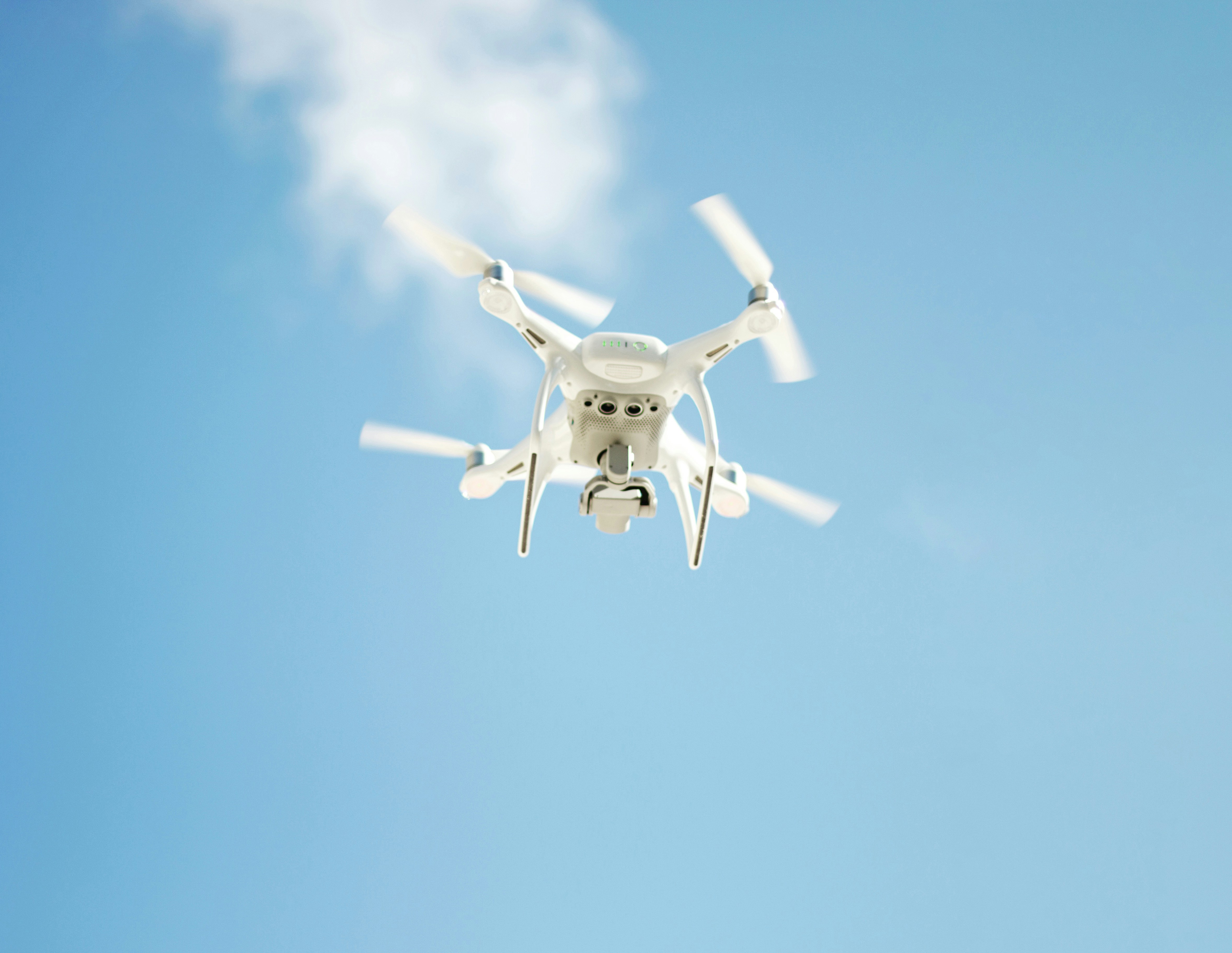
How to Excel as a Drone Systems Engineer: Essential Skills for Career Growth
The growing adoption of Unmanned Aerial Vehicles (UAVs), commonly known as drones, is revolutionising industries ranging from agriculture and logistics to defence and entertainment. At the core of this transformation are Drone Systems Engineers—professionals responsible for designing, developing, and maintaining UAV systems. If you’re aiming to excel in this dynamic role, understanding the required skills and strategies is essential. This article explores what it takes to stand out as a Drone Systems Engineer and advance your career in the fast-evolving UAV sector.
What Does a Drone Systems Engineer Do?
A Drone Systems Engineer is responsible for the end-to-end development of UAV systems, including hardware, software, and operational frameworks. Key responsibilities include:
Designing and testing UAV hardware, including airframes, sensors, and propulsion systems.
Developing and integrating flight control software and navigation systems.
Ensuring compliance with safety and regulatory standards.
Collaborating with cross-functional teams to optimise UAV performance.
Troubleshooting and maintaining operational UAV systems.
This role combines technical expertise, creativity, and problem-solving skills to create UAV systems that meet specific operational requirements.
Core Technical Skills
To succeed as a Drone Systems Engineer, you need a strong foundation in various technical disciplines. Key skills include:
1. Aerospace and Mechanical Engineering
Understanding of aerodynamics, propulsion systems, and flight mechanics.
Knowledge of materials and structural design for lightweight and durable airframes.
2. Electronics and Sensors
Expertise in designing and integrating electronic components such as GPS, IMUs, and LIDAR sensors.
Familiarity with communication systems like RF modules and telemetry links.
3. Programming and Software Development
Proficiency in programming languages such as C++, Python, or Java for developing flight control algorithms.
Experience with drone-specific software frameworks like PX4, ArduPilot, or ROS (Robot Operating System).
4. Systems Integration
Skill in integrating hardware and software components to ensure seamless UAV operation.
Knowledge of middleware and APIs for customising UAV functionality.
5. Testing and Troubleshooting
Ability to conduct rigorous testing of UAV systems, including flight tests and simulations.
Expertise in diagnosing and resolving hardware and software issues.
Regulatory and Safety Knowledge
Compliance with regulatory standards is critical in UAV development. Drone Systems Engineers must understand:
1. Aviation Regulations
Familiarity with regulations from authorities such as the UK Civil Aviation Authority (CAA) or the Federal Aviation Administration (FAA).
Knowledge of airspace classifications and flight restrictions.
2. Safety Protocols
Implementing safety measures to minimise risks during flight operations.
Conducting risk assessments and developing contingency plans for UAV missions.
Business and Strategic Skills
Beyond technical expertise, Drone Systems Engineers must possess strategic capabilities to align UAV systems with organisational goals:
1. Project Management
Managing timelines, budgets, and resources for UAV development projects.
Familiarity with Agile or Scrum methodologies to streamline workflows.
2. Stakeholder Collaboration
Working with clients, regulatory bodies, and internal teams to define requirements and deliver solutions.
Communicating technical concepts effectively to non-technical stakeholders.
3. Market Awareness
Understanding industry trends and emerging applications for UAV technology.
Identifying opportunities for innovation and competitive advantage.
Soft Skills
Soft skills are essential for excelling as a Drone Systems Engineer, enabling you to work effectively in multidisciplinary teams and adapt to evolving challenges:
1. Problem-Solving and Creativity
Developing innovative solutions to design and operational challenges.
Adapting UAV systems to meet diverse application requirements.
2. Collaboration and Teamwork
Coordinating with hardware engineers, software developers, and operations teams.
Fostering a culture of knowledge sharing and collaboration.
3. Adaptability
Staying flexible in a rapidly evolving field with continuous advancements in technology.
Learning new tools, techniques, and regulations as needed.
Educational Background and Certifications
A combination of formal education and certifications can enhance your credibility as a Drone Systems Engineer:
1. Degrees
A Bachelor’s degree in Aerospace Engineering, Electrical Engineering, or Robotics is typically required.
Advanced degrees (Master’s or PhD) in UAV Systems or related fields can provide a competitive edge.
2. Certifications
CAA Approved Drone Pilot Licence: Ensures you understand operational regulations and safety.
Certified Drone Systems Engineer (CDSE): Highlights expertise in UAV system design and integration.
Part 107 Remote Pilot Certificate (FAA): Required for commercial UAV operations in the US.
Project Management Certifications: Such as PMP or PRINCE2 for managing UAV projects effectively.
Tools and Technologies
Drone Systems Engineers rely on a range of tools and technologies to design and maintain UAV systems. Key tools include:
1. Design and Simulation Software
CAD tools like SolidWorks or AutoCAD for airframe design.
Simulation software such as MATLAB/Simulink for testing flight dynamics.
2. Flight Control Platforms
PX4 and ArduPilot for developing and customising flight control systems.
ROS for integrating UAVs with robotic systems.
3. Testing and Prototyping Tools
Wind tunnels for aerodynamic testing.
Rapid prototyping tools like 3D printers for building airframe components.
4. Collaboration Platforms
Slack and Microsoft Teams for team communication.
GitHub for version control and collaboration on software development.
How to Stand Out as a Drone Systems Engineer
To differentiate yourself in the competitive UAV job market, consider these strategies:
1. Build a Comprehensive Portfolio
Showcase projects that highlight your expertise in UAV design, testing, and deployment.
Include case studies with measurable outcomes, such as improved flight efficiency or enhanced sensor accuracy.
2. Contribute to Open Source
Participate in open-source UAV projects to gain experience and visibility.
Publish your own tools or software to demonstrate your expertise.
3. Stay Updated on Trends
Follow industry publications, webinars, and conferences to learn about the latest advancements in UAV technology.
Engage with online communities and forums dedicated to drone systems engineering.
4. Tailor Your CV
Use keywords such as “UAV systems design,” “flight control development,” and “sensor integration.”
Highlight measurable achievements, e.g., “Designed a UAV airframe that increased flight time by 20%.”
5. Polish Your Interview Skills
Be prepared to discuss:
Challenges you’ve faced in UAV system design and how you overcame them.
Examples of successful collaborations with multidisciplinary teams.
Your vision for the future of UAV technology.
Real-World Examples of Success
Understanding how others have excelled can provide valuable insights. Here are a few hypothetical scenarios:
Case Study 1: Designed a UAV system for agricultural monitoring, increasing crop yield by 15% through precise data collection and analysis.
Case Study 2: Developed a drone delivery platform for a logistics company, reducing delivery times by 25%.
Case Study 3: Optimised the integration of LIDAR sensors for a mapping application, enhancing accuracy by 10%.
Final Thoughts
The role of a Drone Systems Engineer is both challenging and rewarding, offering the opportunity to drive innovation in a rapidly growing industry. By developing the right mix of technical, strategic, and soft skills, you can position yourself as a standout candidate in this exciting field.
Whether you’re starting your career or looking to advance, this guide provides a roadmap to success. For more career advice and job opportunities in UAV technology, visit UAV Jobs.


